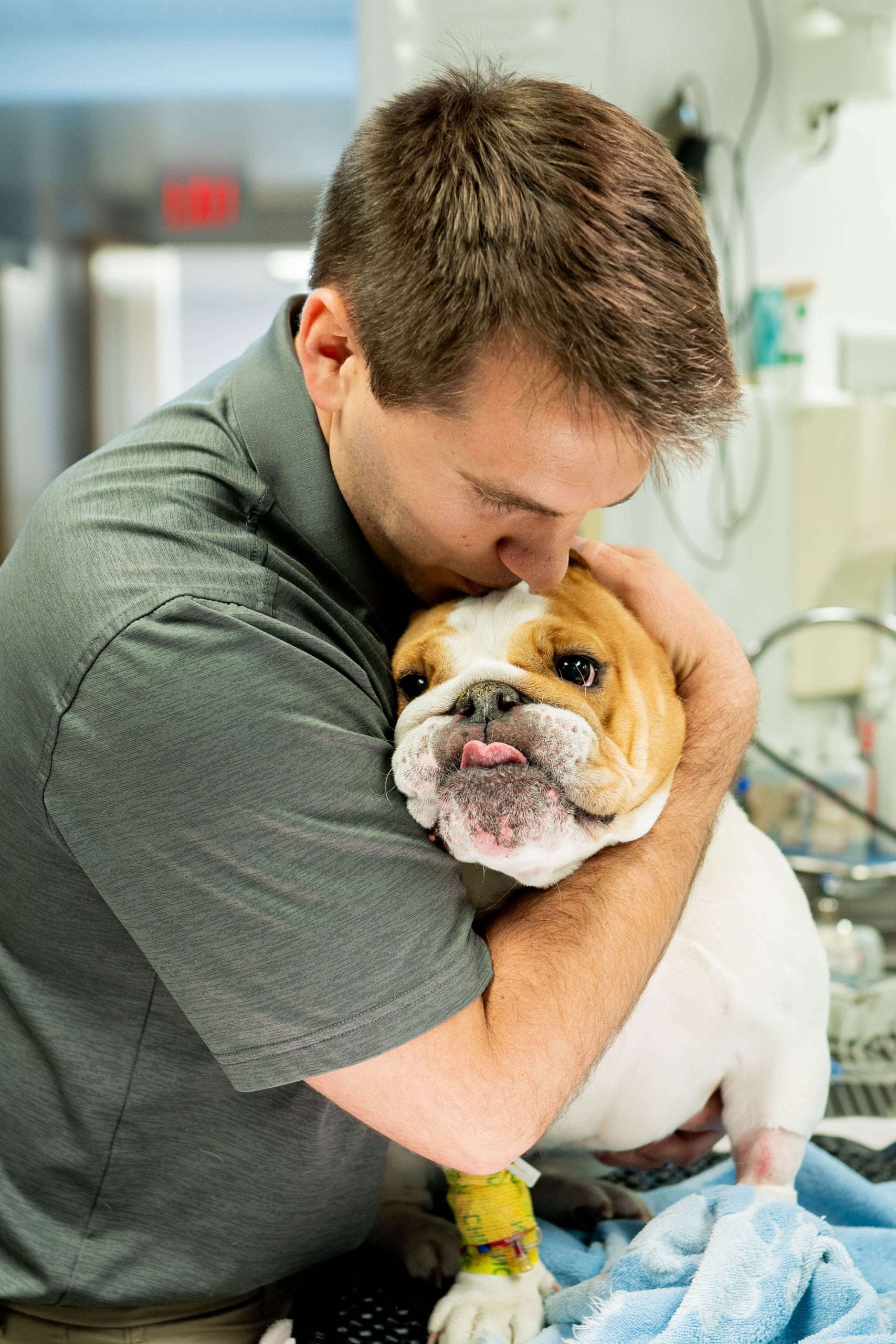

New year resolutions for you and your pet
New year, new pet, right? That’s not always our first thoughts for the new year. Going to the gym, eating healthy, and breaking old habits are normally what we expect when the new year comes around. But there are goals and resolutions we can have for our furry friends as well! It is the responsibility of the owner and the veterinary team to ensure that each animal reaches their ideal weight class in order to prevent any further health problems or issue that may befall them.
Just like people, animals have an ideal weight class depending on their size and species. More often than not, we see dogs and cats that are overweight rather than underweight. The cause of other oversized figure can arise from multiple things. Overfeeding is usually the biggest culprit for weight gain. Giving Fluffy treats under the table or not having a defined and regular feeding schedule can easily lead to excess weight gain. The best way to prevent their overindulgence is to evaluate their diet: what food they are eating, how much and how often. The American Animal Hospital Association (AAHA) provides a good set of guidelines to understand what weight class or “Body Condition Score” (BCS) an animal is. The body size of dogs or cats are ranked on a scale of 1-9, with 1 being malnourished and emaciated, 5 being ideal, and 9 being morbidly obese. The first step to better weight management is to understand where your pet lies on this scale. The next step is to establish a good diet. Brands such as Royal Canin, Hill’s Science Diet, and Purina all offer weight specific foods as well as ones for any other health issues your pet may have (ie, skin allergies, kidney disease, etc.). As far as how much to feed, the guidelines on the food bags are a start. However, most pets require the low end to less food as these guidelines suggest usually based on young, intact, and active dogs. Using an eight ounce measuring cup is the most ideal way to measure their food since it you easily assessing how much food your pet is actually eating. Cutting out table scraps and excess treats will get the number on the scale down. Our Veterinarians here at Central Vet can help consult each client with the proper amount of food each pet should be receiving on a daily basis to maintain a healthy weight or achieve weight loss if that is our goal. Exercising your pet is just as important for ensuring an overall healthy lifestyle. Older patients may be more reluctant to this as their body doesn’t move the same way as it once did. However, going on daily walks or playing the yard will help move those muscles! For our feline friends that are not as active, purchasing toys that have food traps in them will stimulate lots of movement for them! Putting their food on a higher location if they are still able to jump around the house makes eating a challenge for them as well. While determining if you are overfeeding, giving too many treats, feeding a poor quality diet, or providing enough exercise is important, it is equally important to realize that there may be medical reasons for your pet’s weight gain.
Obesity and can be cause by underlying reasons as well, and can cause many more problems. Endocrine issues such as diabetes, hypothyroidism, and Cushing’s disease are all known to cause problems with metabolism and can lead to weight gain. It is important to look out for weight gain with or without change in hunger or attitude. Obesity can also lead to more arthritic problems as they are carrying a heavy burden on all four legs, causing decreased activity levels and joint problems. The best way to look out for these issues is observance at home and evaluation from your vet. Any fast change in weight, gain or loss, warrants evaluation. The clinical signs in addition to blood work at your local vet are key to diagnosing and ruling out any disease.
All of this information leaves us with a lot of food for thought! We are more than happy to see your pet at Central Vet for a weight gain or nutrition consult!

